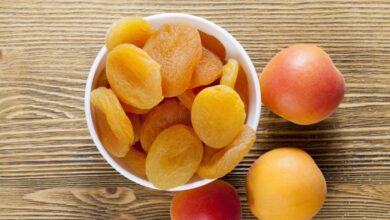What to Eat and Avoid for a Bloated Stomach?

Bloating is a common issue characterized by the inability to expel gas from the gastrointestinal tract, resulting in a heavy feeling in the stomach after eating and abdominal bloating. Factors contributing to bloating include indigestion, overeating, air swallowing, and weight gain.
Bloating is often associated with conditions such as gastroesophageal reflux, irritable bowel syndrome, ovarian cancer, as well as gluten and lactose intolerance. Certain foods can either trigger or alleviate bloating.
Foods that may cause bloating:
- Vegetables like broccoli and cabbage: These contain raffinose, a sugar that produces gas during digestion.
- Legumes such as lentils, soy, and peas: Despite being rich in protein, they also contain sugars and fibers that are hard to digest, leading to bloating.
- Dairy products: Cause bloating in individuals with lactose intolerance.
- Fruits and vegetables like apricots, cherries, apples, peaches, watermelon, artichokes, beets, and onions: These contain carbohydrates that are hard for the small intestine to absorb.
- High-salt foods: Contribute to water retention and stomach bloating.
- Gluten-rich foods like wheat, barley, and rye: Can cause bloating in people with celiac disease or gluten sensitivity.
Foods that may relieve bloating:
- Cucumber: Contains quercetin, an antioxidant that helps reduce bloating.
- Asparagus: Hydrates the body and aids in urination, eliminating excess water and reducing discomfort and bloating. Asparagus also contains prebiotics that support the growth of “good” bacteria, maintaining a healthy balance in the digestive system and preventing or reducing gas formation.
- Rice: A starch-rich food that does not cause bloating, unlike potatoes and corn.
- Bananas, raisins, and dried apricots: These dried fruits, in contrast to their fresh counterparts, are rich in easily digestible sugars and minerals, making them suitable for preventing stomach bloating.
- Exotic fruits like pineapple and papaya: Contain enzymes that aid in breaking down proteins in the digestive system, making digestion easier. They also hydrate the body due to their high water content.
- Ginger: Contains the digestive enzyme zingibain, potentially helping the digestive system break down proteins more efficiently, reducing bloating, gas, or indigestion.
- Avocado: Nutrient-dense and rich in folic acid, vitamin C, and vitamin K. It is also high in potassium, an essential mineral that regulates fluid balance and sodium levels to prevent water retention. The fiber in avocados promotes regular bowel movements, preventing constipation and bloating.
In conclusion, making mindful choices about the types of food consumed can play a significant role in managing and preventing bloating. Incorporating foods that are less likely to cause bloating and favoring those known to alleviate discomfort can contribute to a healthier digestive system.


